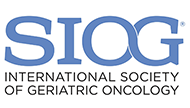There are five ad-hoc committees within the SIOG governance.
SIOG Consortium Committee
The SIOG Corporate Relations ad-hoc Committee is now the SIOG Consortium Committee.
This committee is responsible for all corporate and industry relations of the Association (including fundraising) and in particular, linked to the SIOG annual conference and other educational events. It ensures that corporate activities at SIOG conferences and the investment of industry in other SIOG ventures are in the best interests of the Association. The committee reviews and approves potential, new or alternative revenue-generating opportunities with a view of protecting the financial well-being and integrity of the Association. It is also the platform wherein matters concerning industry such as changes in industry regulations, future collaborations and long-term initiatives involving industry are discussed.
Geriatrics ad-hoc Committee
The SIOG Geriatrics ad-hoc Committee is for geriatricians who are interested in geriatric oncology, and who seek a forum of fellow geriatricians to share ideas and experiences in clinical practice and research. The committee is also a resource for SIOG to involve dedicated geriatricians in projects and conferences.
Social Media ad-hoc Committee
The SIOG Social Media ad-hoc Committee shall maintain the Twitter channel of SIOG. It will work in conjunction with the SIOG Secretariat to promote the value of SIOG Membership and to support the efforts of the SIOG activities.
Surgical ad-hoc Committee
The SIOG Surgical ad-hoc Committee (SAHC) is an integral part of the SIOG as surgery is an integral part of the treatment of senior adults affected by solid malignancies. As surgery is always evolving so is the SAHC, which is constantly looking for and welcoming new members who share the passion for the care of older patients.
Nominating ad-hoc Committee
The SIOG Nominating ad-hoc Committee is responsible for the selection and presentation to the General Assembly of the candidates for the elections of President-Elect and other members of the Board of Directors (Treasurer, Chairperson of any other permanent committees, and interest groups as well as Member at large). Its members are invited every two years by the SIOG Secretariat and composed of a representative from the SIOG Nursing and Allied Health Interest Group, the young SIOG Interest Group and five (5) SIOG members each from North America, Asia/Asia Pacific, Europe, Eastern Mediterranean and Latin America.


